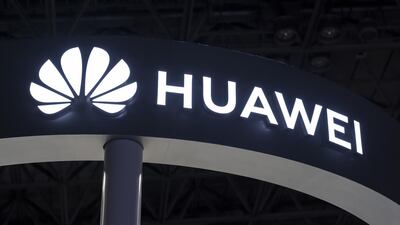Huawei has pleaded a US court to undo a law that prohibits American federal agencies and contractors from buying or using the Chinese telecom giant’s equipment because of the alleged risk of "cyber exploitation" by China.
Lawyers for Huawei have urged a federal judge in Texas to rule that the law is an unconstitutional attempt by Congress to drive the company out of the country.
If Huawei prevails and gets the ban overturned, it may have ramifications for the US-China trade war. While the Donald Trump administration has given mixed messages on whether its security concerns about Huawei could be addressed as part of a trade deal, the sanctions against the company provide the US with leverage in the trade talks, said Alan Sykes, a law professor at Stanford University.
China’s biggest technology company is trying to convince the US District Judge Amos Mazzant in Texas, that it was punished “without a hearing or trial” by Section 889 of the 2019 National Defence Authorization Act. The measure prohibits federal agencies and contractors from using routers, switches and other equipment made by Huawei and China’s ZTE Group.
The judge probed the company’s and government’s lawyers with questions about the details of their legal arguments and asked for additional written statements to be filed.
Federal judges are usually reluctant to second guess the government’s evaluation of a national security risk. In a case with some parallels to Huawei’s, the US court of appeals in Washington last year affirmed that Kaspersky Lab, a Russian cyber-security company, wasn’t unlawfully targeted by a similar law that excluded it from federal computer systems because of its close relationship with the Russian government.
The US argues that concerns that Huawei could be used by the Chinese government to target telecommunication networks is not an overnight development. A 2005 report by the RAND Corporation - an American global policy think tank - and a 2009 report by the Defence Department said that Huawei has significant ties to the Chinese military, according to the US.
With the advance of 5G wireless technology and the expected exponential growth of internet-connected devices, the need to protect the telecommunications networks from possible cyber threats will only increase, the US said.
“When considered in light of the years long analysis and steady stream of governmental actions preceding it, Section 889 represents not only a considered response, but the logical next step, to further government’s aim of ensuring that China is not given a strategic foothold in the networks of federal agencies,” the US said in its request to have the lawsuit thrown out.
Huawei’s market in the US has been very limited but the litigation will be monitored by other countries that are weighing whether to allow the company’s equipment in their 5G networks, said Ji Li, a law professor at the University of California in Irvine.
Huawei has denied that its products could be used for espionage and has worked aggressively to market its equipment. So far, few countries, including Australia and recently Poland, have been persuaded by Mr Trump administration to ban Huawei from their 5G infrastructure.
Many other countries in Europe, Asia and Latin America have indicated they won’t ban the company’s equipment even though some may restrict use of Huawei products in core parts of their networks or increase security measures to safeguard against potential back doors.

